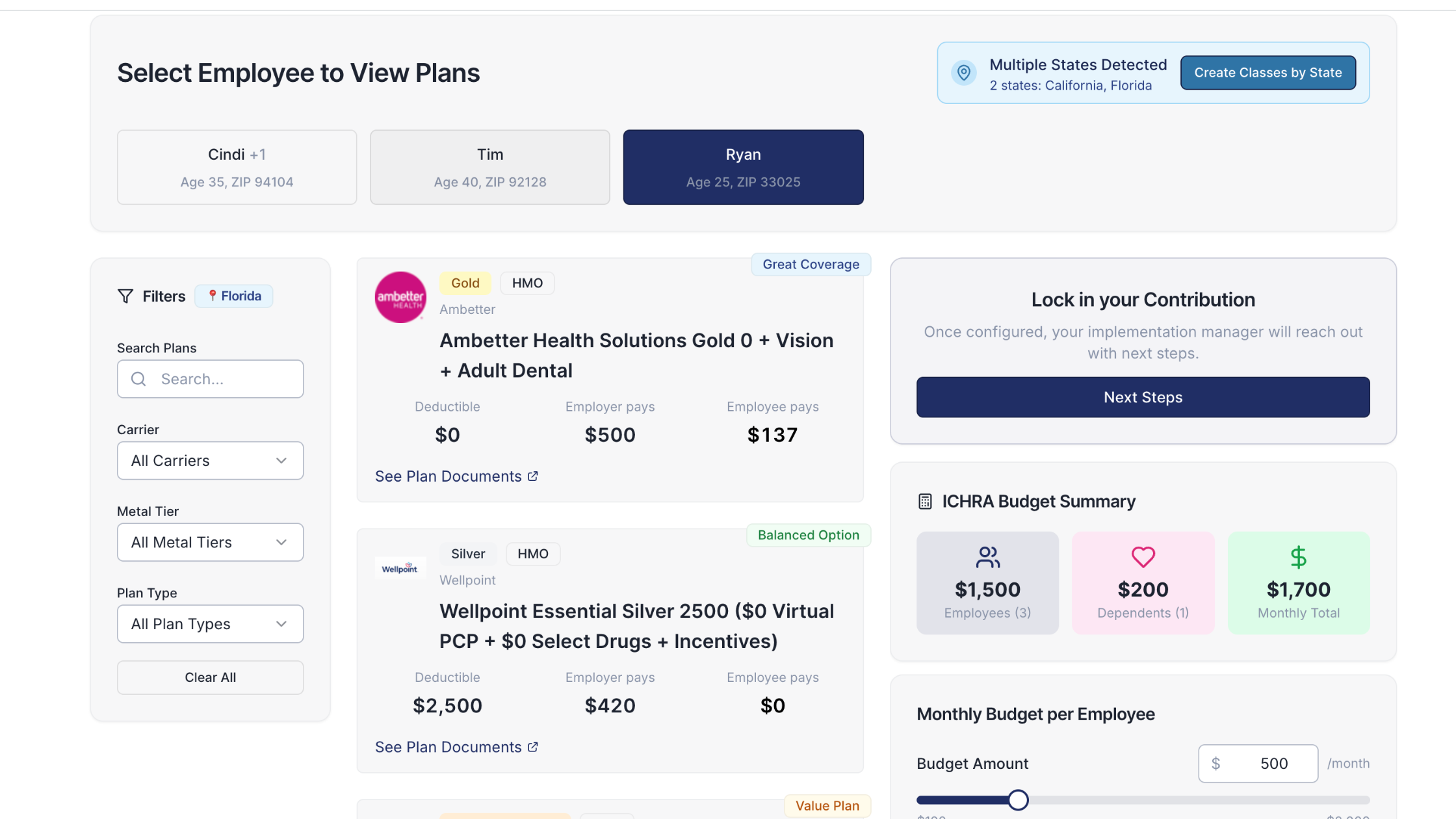ICHRA and COBRA: Friends or Frenemies?

ICHRA & COBRA: What You Need to Know
Firstly, if your company had a workforce of at least twenty individuals, including full-time and part-time staff, in the previous calendar year, then you need to be well-versed with COBRA. COBRA typically offers its coverage for 18 months. However, under certain circumstances, it can be extended for an additional 18 months.
Eligibility for COBRA
An employee becomes eligible for COBRA if they are terminated for reasons other than gross misconduct or if their work hours are reduced. Moreover, the spouse and dependents of an employee also become eligible if the primary insured becomes eligible for Medicare, passes away, or in the event of legal separation, divorce, or a dependent turning 26.
However, it's vital to note that the employee and their dependents must have been covered by the company's ICHRA just before any of these qualifying events to be eligible for COBRA coverage.
The Ownership Advantage with ICHRA
One significant advantage of ICHRA is that employees truly "own" their health plan. This means even if they decide to leave their current employment, they can retain their health plan – they just have to take over the payments. This is a stark contrast to traditional employer-sponsored health plans, where leaving a job could mean losing one's health insurance. Opting for COBRA might offer continuity, but it rarely matches the flexibility and ownership advantages of ICHRA. In most cases, employees will find it more beneficial, both financially and for peace of mind, to continue with their ICHRA plan rather than switching to COBRA.
When Does COBRA Make Sense?
There are scenarios where COBRA might be the more appropriate option for employees. Specifically, if an employee has accumulated a considerable health wallet balance under their ICHRA, which they still want to utilize, COBRA could be their best bet. This is because COBRA allows them to access and use this balance. It's essential to weigh the benefits of the remaining balance against the additional costs and decide accordingly.
Cost Implications with COBRA
When employees opt for COBRA coverage, they shoulder the full burden of their insurance premiums. Additionally, they are saddled with an extra 2% surcharge on top of this. Thus, employees end up paying more than just their insurance premiums, making COBRA a costlier option.
ICHRA and COBRA Made Easy
Venteur assists employers by disseminating COBRA notices to employees as a part of our dedicated service. We understand the intricacies of these processes and aim to make it smoother for all parties involved.
In Conclusion
So, are ICHRA and COBRA friends or frenemies? The answer is a complex one: they are both. On one hand, ICHRA's design and flexibility have made COBRA seem almost irrelevant for many employees, providing them with ownership of their health plans and the freedom to continue with them beyond employment. On the other hand, due to existing legal frameworks, COBRA still intertwines with ICHRA, making it essential for employers and employees to understand their coexistence. Together, they represent the evolving landscape of health insurance options, each with its unique set of advantages and considerations.
You got questions, we got answers!
We're here to help you make informed decisions on health insurance for you and your family. Check out our FAQs or contact us if you have any additional questions.
Explore more related content
What is Venteur
Explore the best human-first Health Insurance platform
Simple, personalized health benefits
Sign up in minutes, define your contribution, and let your employees choose the health plan that works right for them
Integrations to make everything run smoothly
We'll connect with your payroll and finance systems to make deductions and premium payments seamless
Easy onboarding and off-boarding
In just a few clicks, add your roster and make updates on the fly. We'll handle it from there.
Venteur Certified Brokers to help your employees pick the right plan
Our trusted brokers ensure the best outcomes for employees and employers by unlocking health savings and providing unrivaled plan options.
AI-powered plan recommendations to give you confidence while you shop
Backed by 30 years of healthcare data, Venteur’s AI helps employees compare and choose the best plan for their unique situation.
Compliance and reporting because no-duh!
Venteur manages plan administration, reporting, and compliance so you can focus on growing your business.


